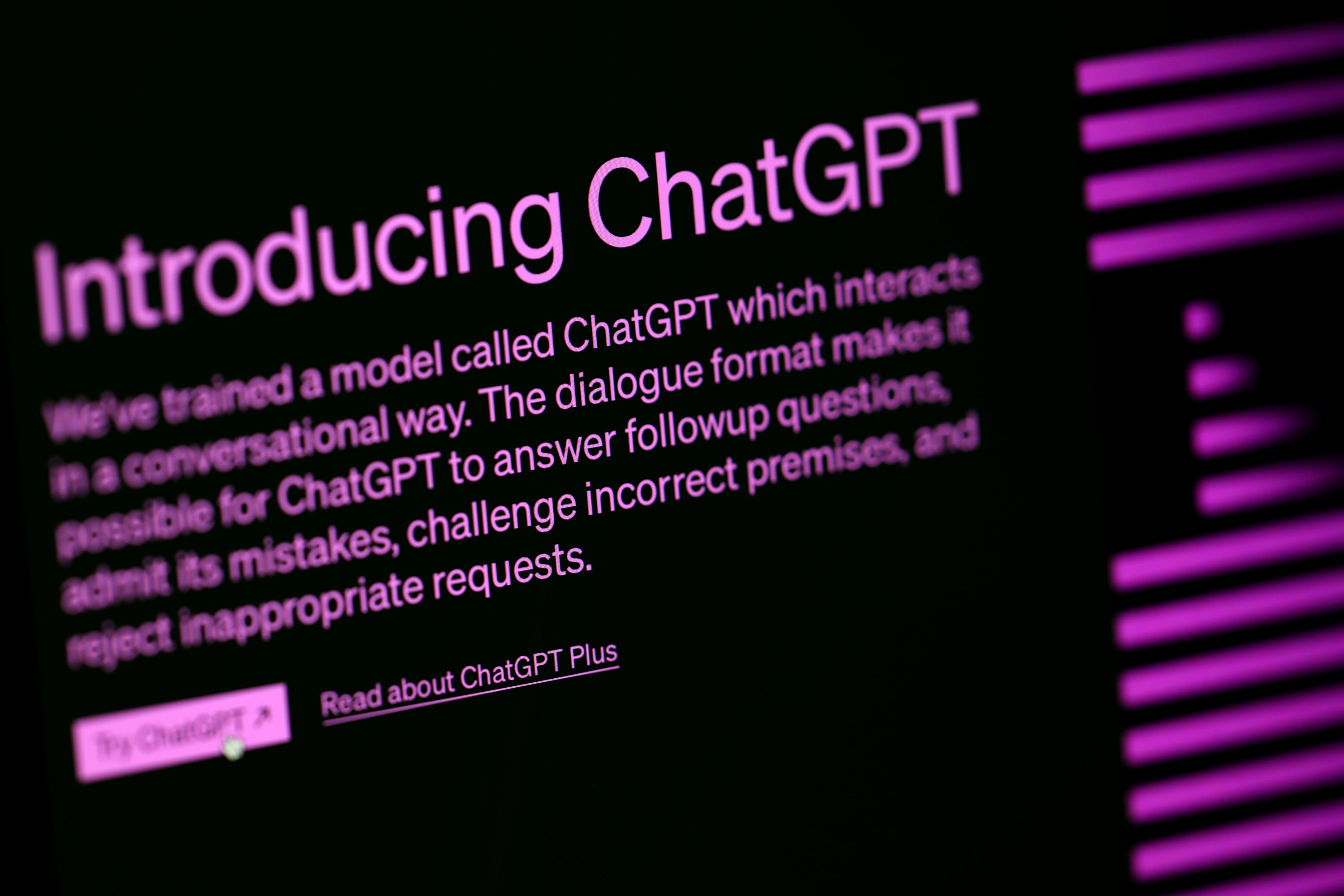AI chatbot ‘could be better at assessing eye problems than medics’
Researchers said that while the model does not ‘seem capable’ of replacing ophthalmologists, it could ‘provide useful advice’ to non-specialists’.

Your support helps us to tell the story
This election is still a dead heat, according to most polls. In a fight with such wafer-thin margins, we need reporters on the ground talking to the people Trump and Harris are courting. Your support allows us to keep sending journalists to the story.
The Independent is trusted by 27 million Americans from across the entire political spectrum every month. Unlike many other quality news outlets, we choose not to lock you out of our reporting and analysis with paywalls. But quality journalism must still be paid for.
Help us keep bring these critical stories to light. Your support makes all the difference.
Artificial intelligence (AI) model ChatGPT could be better at assessing eye problems than doctors, a study has suggested.
The technology could be deployed to triage patients and determine who needs specialist care and who can wait to see a GP, researchers said.
Academics from the University of Cambridge tested the ability of ChatGPT 4 against the knowledge of medics at various stages of their careers, including junior doctors and eye specialists in training.
We could realistically deploy AI in triaging patients with eye issues to decide which cases are emergencies that need to be seen by a specialist immediately, which can be seen by a GP, and which don’t need treatment
Some 374 ophthalmology questions were used to train the language model, with its accuracy then tested in a mock exam of 87 questions.
Its answers were compared to those from five expert ophthalmologists, three trainee ophthalmologists, and two unspecialised junior doctors, as well as an earlier version of ChatGPT and other language models Llama and Palm2.
Researchers said language models like ChatGPT “are approaching “expert-level performance in advanced ophthalmology questions”.
ChatGPT 4 scored 69%, higher than ChatGPT 3.5 (48%), Llama (32%) and Palm2 (56%).
The expert ophthalmologists achieved a median score of 76%, while trainees scored 59% and junior doctors scored 43%.
Lead author of the study Dr Arun Thirunavukarasu, who carried out the work while studying at the University of Cambridge’s School of Clinical Medicine, added: “We could realistically deploy AI in triaging patients with eye issues to decide which cases are emergencies that need to be seen by a specialist immediately, which can be seen by a GP, and which don’t need treatment.
“The models could follow clear algorithms already in use, and we’ve found that GPT-4 is as good as expert clinicians at processing eye symptoms and signs to answer more complicated questions.
“With further development, large language models could also advise GPs who are struggling to get prompt advice from eye doctors. People in the UK are waiting longer than ever for eye care.”
Researchers said that while language models “do not appear capable” of replacing eye doctors, they could “provide useful advice and assistance to non-specialists”.
Dr Thirunavukarasu, who now works at Oxford University Hospitals NHS Foundation Trust, added: “Even taking the future use of AI into account, I think doctors will continue to be in charge of patient care.
“The most important thing is to empower patients to decide whether they want computer systems to be involved or not. That will be an individual decision for each patient to make.”
The findings of the study have been published in Plos Digital Health.
Subscribe to Independent Premium to bookmark this article
Want to bookmark your favourite articles and stories to read or reference later? Start your Independent Premium subscription today.